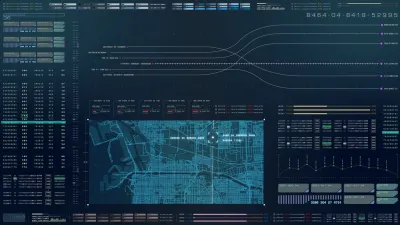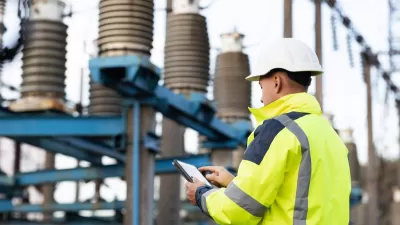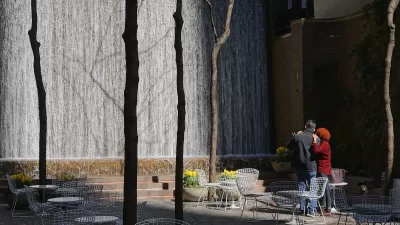Street furniture like benches, garbage cans, and bike racks are found in every city. But not all street furniture is created equal—new technology is redefining street furniture as the smart devices that run efficient cities.
Mike Clay examines worldwide examples of cities “incorporating smart street furniture - that is more responsive to the public’s needs.”
Clay’s examples include bike counters that double as air pumps found in Copenhagen. Citing another European experience with bike counters, “[the] German Ministry of Transport sees bicycle counters as ‘visible proof of a dedicated effort to strengthen cycling’, and have become landmarks of Germany's cities.”
Another example is trash cans with built-in sensors: “bins can detect how full they are and call for collection only when it is needed.” The University of Washington has deployed another advancement of the traditional trash can: “Instead of wasting 61 percent of rubbish, the University of Washington introduced solar-powered kiosks that collect, compost, and recycle garbage.”
As future smart device that could improve the conditions of streets, Clay suggests implementing the water sensor technology currently saving water at farms around the world “into tree-pit irrigation systems [in cities] …saving water when needs be and alerting civic authorities when trees need watering.”
FULL STORY: How Data-Powered Street Furniture is Making Cities Smarter

Alabama: Trump Terminates Settlements for Black Communities Harmed By Raw Sewage
Trump deemed the landmark civil rights agreement “illegal DEI and environmental justice policy.”

Planetizen Federal Action Tracker
A weekly monitor of how Trump’s orders and actions are impacting planners and planning in America.

Why Should We Subsidize Public Transportation?
Many public transit agencies face financial stress due to rising costs, declining fare revenue, and declining subsidies. Transit advocates must provide a strong business case for increasing public transit funding.

Understanding Road Diets
An explainer from Momentum highlights the advantages of reducing vehicle lanes in favor of more bike, transit, and pedestrian infrastructure.

New California Law Regulates Warehouse Pollution
A new law tightens building and emissions regulations for large distribution warehouses to mitigate air pollution and traffic in surrounding communities.

Phoenix Announces Opening Date for Light Rail Extension
The South Central extension will connect South Phoenix to downtown and other major hubs starting on June 7.
Urban Design for Planners 1: Software Tools
This six-course series explores essential urban design concepts using open source software and equips planners with the tools they need to participate fully in the urban design process.
Planning for Universal Design
Learn the tools for implementing Universal Design in planning regulations.
Caltrans
Smith Gee Studio
Institute for Housing and Urban Development Studies (IHS)
City of Grandview
Harvard GSD Executive Education
Toledo-Lucas County Plan Commissions
Salt Lake City
NYU Wagner Graduate School of Public Service





























